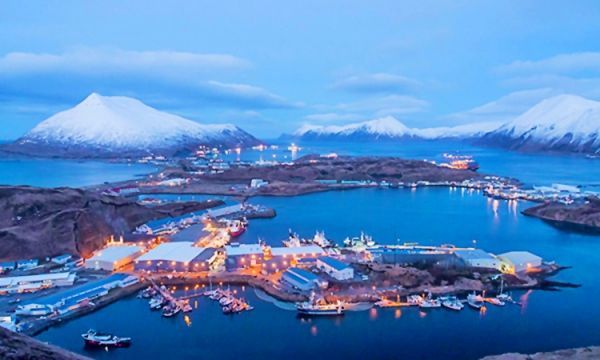The Bering Sea ecosystem, which has experienced unprecedented changes in recent years, provides a real-world testing ground for a new strategy to help marine resource managers anticipate and respond to climate change. The new strategy, developed by NOAA Fisheries scientists, is outlined in a paper published this week. It calls for evaluating existing management measures and developing climate forecasts for various marine areas in Alaska, over different time frames, to promote sustainable fisheries under changing environmental conditions.
“We’re talking about responsive science and management. What’s unique about our approach is that we consider interacting climate, biological, and socio-economic changes and how humans are affected by those changes,” said Kirstin Holsman, lead author, and scientist at Alaska Fisheries Science Center.
According to Holsman, this is important because changes in social conditions can influence how people respond to management measures and, ultimately, their effectiveness.
“We wanted to provide resource managers with a strategy to help them better understand environmental and socioeconomic variability over time, to help them balance tradeoffs and anticipate tipping points when the transition to a new ecosystem or social state occurs. At that point, it becomes about adaptation.”
Continue reading at NOAA Fisheries.
Image via NOAA Fisheries.


